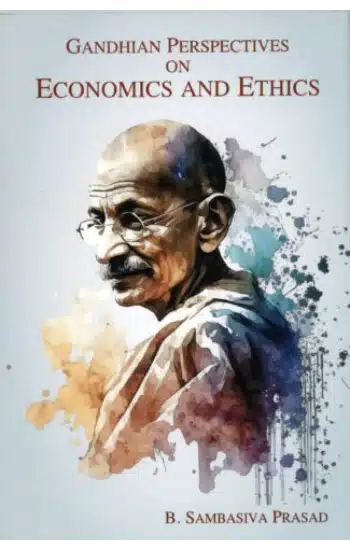
Save: 20%

Save: 25%
Gandhian Perspectives on Economics and Ethics
Publisher:
| Author:
| Language:
| Format:
Publisher:
Author:
Language:
Format:
₹600 ₹480
Save: 20%
Out of stock
Receive in-stock notifications for this.
Ships within:
Out of stock
ISBN:
Page Extent:
The book explores the ethical foundations of Gandhian economic order and discusses their relevance to the modern times. It also aims at comparing Gandhian economic ideals with those of classical thinkers like Adam Smith, John Ruskin and Karl Marx, and the modern scholars like Kumarappa, Schumacher, Amartya Sen and John Rawls. The Indian and Western influences, along with British imperialism, have shaped Gandhian economic philosophy. The economic ideals and practices of Gandhi are centred round two fundamental principles – truth and non-violence. Gandhian thought, economics and ethics go together. There is no distinction between them. The relation between economics and ethics works both ways. Gandhian economics is service economy. It is based upon selfless service and altruism. It transforms economics from positive science to normative science. Gandhian economics is not pure economics. It is holistic in nature. To Gandhi, economic questions cannot be isolated. They are interrelated with social, political and religious matte Gandhian economics is man centred, not money centred. The notions of swaraj, svadeshi, bread labour, aparigraha, trusteeship, sarvodaya, constructive programme, decentralized economy, critique of industrial civilization and economy of permanence are discussed, under the backdrop of Gandhian economics. Finally, an estimate of Gandhian economic order is presented. Economic transformation is possible when there is a change from economic man to Gandhian man; if not, Gandhi’s dream of economic order will remain as a pipedream.
The book explores the ethical foundations of Gandhian economic order and discusses their relevance to the modern times. It also aims at comparing Gandhian economic ideals with those of classical thinkers like Adam Smith, John Ruskin and Karl Marx, and the modern scholars like Kumarappa, Schumacher, Amartya Sen and John Rawls. The Indian and Western influences, along with British imperialism, have shaped Gandhian economic philosophy. The economic ideals and practices of Gandhi are centred round two fundamental principles – truth and non-violence. Gandhian thought, economics and ethics go together. There is no distinction between them. The relation between economics and ethics works both ways. Gandhian economics is service economy. It is based upon selfless service and altruism. It transforms economics from positive science to normative science. Gandhian economics is not pure economics. It is holistic in nature. To Gandhi, economic questions cannot be isolated. They are interrelated with social, political and religious matte Gandhian economics is man centred, not money centred. The notions of swaraj, svadeshi, bread labour, aparigraha, trusteeship, sarvodaya, constructive programme, decentralized economy, critique of industrial civilization and economy of permanence are discussed, under the backdrop of Gandhian economics. Finally, an estimate of Gandhian economic order is presented. Economic transformation is possible when there is a change from economic man to Gandhian man; if not, Gandhi’s dream of economic order will remain as a pipedream.
About Author
Reviews
There are no reviews yet.
Related products
Burhanpur: Unexplored History, Monuments And Society
Save: 15%
Harappan Studies: Recent Researches In South Asian Archaeology (Vol. Ii)
Save: 15%
RELATED PRODUCTS
Burhanpur: Unexplored History, Monuments And Society
Save: 15%
Early History Of Varanasi: Recent Excavations At Rajghat
Save: 15%
Eighteenth Century Deccan: Cultural History Of The Peshwas
Save: 15%
Harappan Studies: Recent Researches In South Asian Archaeology (Vol. Ii)
Save: 15%
India, Central Asia And Russia: Three Millennia Of Contacts
Save: 15%
Maritime Trade And Overseas Activities Of Early India: Odishan Perspective
Save: 15%
Ornamentation In Indian Architecture: Oriental Motifs And Designs
Save: 15%
The Dussehra Of Kulu: History And Analysis Of A Cultural Phenomenon
Save: 15%
Women And Gender In Ancient Inida: A Study Of Texts And Inscriptions
Save: 15%



Reviews
There are no reviews yet.